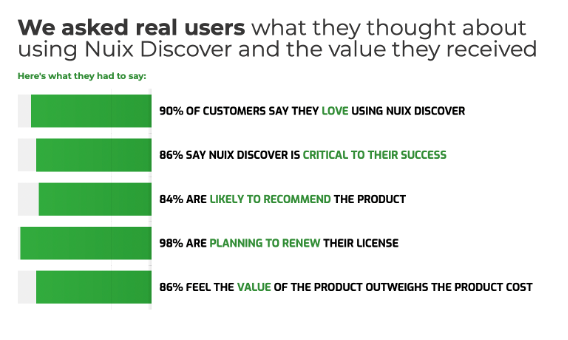Over recent years, the technology innovation in the eDiscovery market has stagnated. Despite the increasing complexities of legal, risk and compliance processes and the surge in data volumes, the pace of transformative advancements in eDiscovery has been notably sluggish. Innovation has been slow, hindering the evolution of solutions that adequately meet the needs in a ‘post-pandemic’ market.
One significant contributing factor to this stagnation is the industry’s tardiness to respond to emerging technologies. Many eDiscovery platforms remain anchored to traditional methodologies, failing to leverage the full potential of artificial intelligence, machine learning, and other cutting-edge technologies. Slow adoption of these innovations has resulted in missed opportunities to enhance efficiency, reduce costs, and improve accuracy in the discovery process allowing competitors with adjacent technologies to gain a foothold. New market entrants are a positive driver for innovation and although the market is currently largely set on established technologies, there are some emerging technologies suggesting there is still room for differentiating technology.
Moreover, a lack of interoperability and standardisation among eDiscovery tools has impeded progress. Siloed solutions that do not seamlessly integrate with other legal tech applications hinder the creation of a cohesive and efficient eDiscovery ecosystem. This disjointed landscape not only complicates workflows but also stifles the development of unified, comprehensive solutions. Also, eDiscovery tools that do not integrate well with broader Enterprise technologies impedes wider compliance and information governance solutions.
Revitalising the Market:
To revitalise the eDiscovery technology market, industry players must prioritise collaboration, invest in research and development, and adopt a forward-thinking approach to integrating emerging technologies. Breaking free from the inertia of the past five years is essential to meet the evolving demands of the market, unlock full potential and broaden the reach of eDiscovery technology.
What’s New in 2023?
So, has anything changed in 2023? Let’s look at some of this year’s news announcements in the eDiscovery market:
Nuix: Launch of Neo and reinvigorate interest in Nuix Discover
Nuix has announced the launch of ‘Neo’, which is described as a revolutionary data intelligence platform, drawing on over 20 years of industry leadership. According to Nuix, this solution is ‘a powerful and integrated platform for organisations looking to solve their most challenging data problems. Leveraging unmatched data processing power – now infused with responsible AI – you can automatically identify, classify, and contextualise data, ultimately saving your organisation’s time, money and even reputation’.
The solution is presented as the ideal tool for diverse data challenges and offers customisation for specific needs such as data privacy, legal processing, and investigations. Nuix describe Neo as an advancement in addressing complex data challenges with precision and agility. At Panoram we look forward to working with this solution and real-life client use cases in 2024.
We’re also pleased to see a reinvigorated interest in Nuix Discover with the publication of a new Buyer Experience Report. Highlighted results are shown below:

Nuix Discover is one of the platforms Panoram uses for our clients’ most complex cases. When used in the right way, Nuix Discover is one of the most powerful platforms on the market for processing large volumes of data to identify risks. Certainly an impressive report, but we hope to see one of the more prominent analyst houses, such as Gartner or Forrester, give it the recognition it deserves for the market in the future.
Relativity amplifies AI efforts
Relativity introduced what they describe as a suite of AI solutions designed to ‘empower its users’ practice for a new era of data discovery’. Among these offerings is ‘aiR for Review’, which according to Relativity, will significantly expedite various stages of litigation or investigative reviews and provide users with in-depth case analysis at ‘an unprecedented speed and quality’. They advise that the solution should allow users to swiftly pinpoint data relevant to discovery requests, identify materials related to legal issues, access key documents, and review citations and rationale embedded in the recommendations. aiR for Review is expected to be released at the end of the year, with general availability expected in the first half of 2024.
Relativity’s commitment to advancing AI solutions is further evidenced by the launch of ‘Relativity Personal Information Detect and Relativity Data Breach Response’. This strategic investment underscores Relativity’s dedication to shaping the future of data discovery. We look forward to hearing more about these advancements and how they could redefine eDiscovery.
Reveal grows as they announce new acquisitions
Reveal has undergone a series of acquisitions, including Logikcull and IPRO, positioning itself as providing ‘the first comprehensive end-to-end eDiscovery platform’. The solution is said to cater to legal teams of all sizes, from solo practitioners to large enterprises, offering a versatile range of tools to address matters of varying complexity. According to their press release, by combining Logikcull and IPRO’s capabilities with Reveal’s established AI expertise, the company has created a unified hub for eDiscovery, supporting self-service options for smaller cases and robust, enterprise-grade solutions for more complex legal challenges.
This strategic move not only signifies Reveal’s commitment to offering a one-stop solution for eDiscovery needs but also has the potential to significantly impact the eDiscovery market in 2024. Time will tell if this integrated platform can set a new standard for versatility and efficiency in handling legal matters. Reveal’s acquisitions suggests a potential shift in the eDiscovery landscape where legal teams may increasingly turn to comprehensive, end-to-end solutions for their eDiscovery requirements.
These are just some of the highlights that stood out as potentially offering some game-changing technologies for the market. Also, our pick for potentially disruptive tech is Merlin’s Discovery Partner. Still early days for this AI-powered cloud solution but the search power looks impressive with the potential to re-imagine the way lawyers and investigators work with eDiscovery tech.
Panoram is a team of eDiscovery experts providing a boutique, white-glove service to our clients, both law firms and corporations. While we’re excited about the anticipated changes new advancements in eDiscovery can bring, we emphasise that technology itself will not deliver benefits if not used correctly and aligned with the right processes. It’s only when technology, people and processes align correctly that you can effectively navigate the realm of digital data-risk management.
The eDiscovery landscape is evolving, and the innovations discussed here are promising signs of a new chapter in eDiscovery in the legal tech industry but only time will tell if they offer truly transformative experiences and deliver the right outcome for clients.
We look forward to bringing you our next blog in this series, centred around our predictions for the eDiscovery market in 2024.


